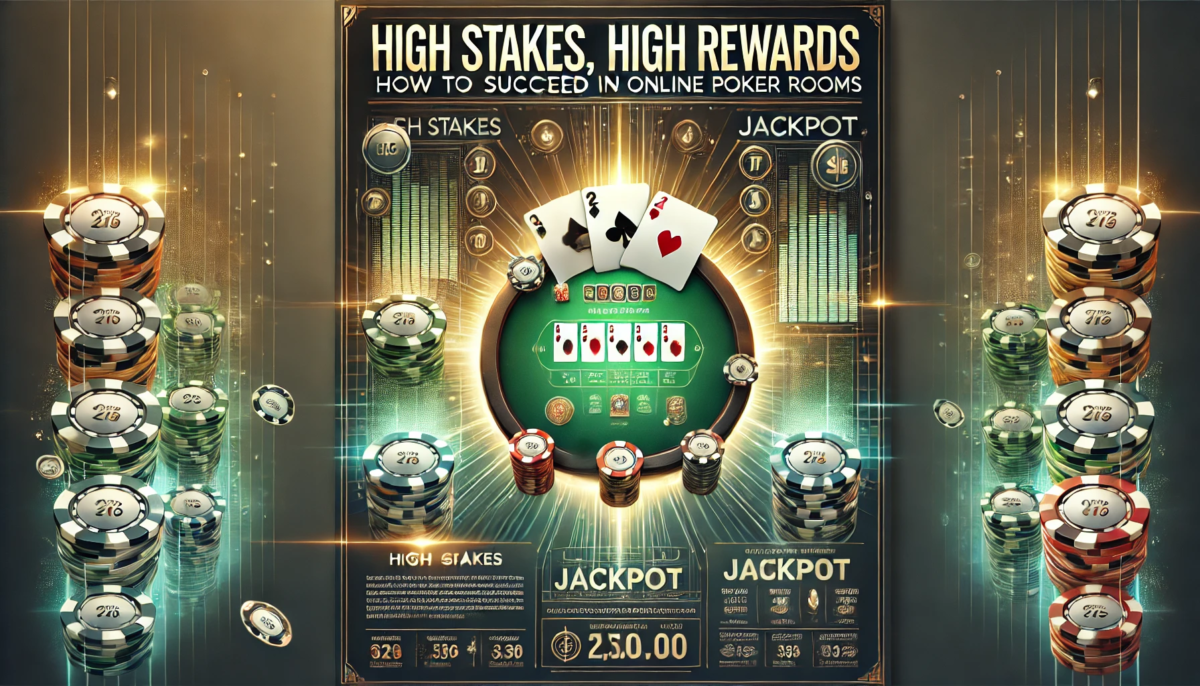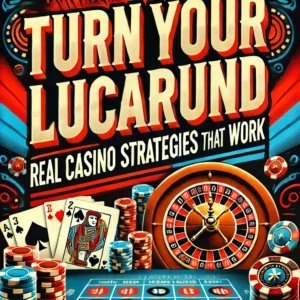At DEWAKOIN, we know how important a good online gaming experience is. Poker etiquette rules are key to making it enjoyable and rewarding for everyone. By following basic poker table manners, players can make sure everyone has a good time.
Understanding poker strategy and etiquette is vital for any player. It helps improve your game and keeps you from feeling embarrassed at the table.
In the world of poker, following etiquette rules is crucial. It makes the game respectful and fun for all players. At DEWAKOIN, we aim to give our players the knowledge and tools they need to succeed. This includes mastering poker etiquette rules.
By following poker etiquette rules, players can improve their game and make it more enjoyable for everyone. Whether you’re a pro or a beginner, knowing poker table manners and strategy is essential. At DEWAKOIN, we’re here to help our players reach their goals and provide them with the resources they need.
Key Takeaways
- Understanding poker etiquette rules is essential for a positive gaming experience
- Poker table manners, such as respecting the dealer and other players, are crucial for a enjoyable game
- Mastering poker strategy and etiquette can help players avoid embarrassment and improve their game
- Following established poker etiquette rules can contribute to a respectful and enjoyable environment for all players
- At DEWAKOIN, we’re committed to providing our players with the knowledge and tools they need to succeed, including mastering poker etiquette rules
- By embracing poker etiquette rules and best practices, players can elevate their game and create a more enjoyable experience for everyone involved
- Poker etiquette rules, such as clear verbal announcements and proper chip handling, are essential for a smooth and enjoyable game
Understanding Basic Poker Table Protocol
At DEWAKOIN, we think it’s key to know the poker etiquette rules for a fun and rewarding game. We’ll cover the basics of poker table protocol. This includes arriving on time, following seating procedures, and understanding buy-in etiquette. These steps are important for a smooth game and a good time for everyone.
Timing is crucial in poker table protocol. Showing up late can mess up the game. But arriving early lets you get ready and focused. Also, how you sit at the table matters a lot. It affects the game’s flow. By following these simple rules, players can make the table a positive place.
Buy-in etiquette is also very important. Players need to know the buy-in limits and rules for joining or leaving the game. This knowledge helps avoid confusion and keeps the game running smoothly. At DEWAKOIN, we aim to offer a safe and fun online gaming space. By learning poker etiquette, our players can improve their game.
The Cardinal Rules of Poker Behavior
Mastering poker player behavior is key to a great gaming time. In the world of poker, knowing poker game etiquette and poker tournament etiquette is crucial. These rules help keep the table atmosphere positive and respectful.
It’s important to respect the dealer, other players, and the game. This means avoiding slow rolling, staying positive, and solving disagreements well. This way, everyone at the table can have a good time.
Some important parts of poker game etiquette are:
- Being aware of how your actions affect others
- Respecting the dealer’s decisions and role
- Making quick decisions to keep the game flowing
By sticking to these rules, players help make the game better for everyone. This makes the whole experience more enjoyable.
Managing Your Chips and Cards
We know how crucial poker chip handling and poker card protection are for a great game. At DEWAKOIN, we offer top slot games and tips on managing chips and cards.
To boost your poker betting strategy, learn the basics of chip handling and card protection. This means organizing your chips, keeping cards hidden, and betting wisely. These steps can make your game better and up your winning chances.
Here are some key tips to keep in mind:
- Handle your chips with one hand to prevent cheating
- Keep your cards close to your body to protect them from being seen
- Make informed betting decisions based on your hand and the betting pattern of other players
Mastering poker chip handling, poker card protection, and poker betting strategy will elevate your gaming at DEWAKOIN. Enjoy a more rewarding and exciting experience.
| Chip Handling Tips |
Card Protection Tips |
Betting Strategy Tips |
| Keep your chips organized |
Keep your cards close to your body |
Make informed betting decisions |
| Handle your chips with one hand |
Protect your cards from being seen |
Pay attention to the betting pattern of other players |
Verbal and Non-verbal Communication at the Table
Effective communication is key at the poker table. It’s not just about what we say. Poker body language and poker table talk play big roles. About 65% of what we communicate comes from nonverbal signals, making poker body language very important.
Nonverbal signals can be tricky, lacking clear rules like grammar. Yet, we often trust nonverbal actions more than words, even when stressed. Understanding poker communication means paying attention to our nonverbal signs. This includes our facial expressions, posture, and eye contact.
Some important parts of nonverbal communication at the poker table are:
- Being careful with our poker body language to keep our hand secret
- Using friendly poker table talk to connect with other players
- Staying away from actions that might upset the game

By knowing how we communicate, we can make the poker table a better place. This leads to a more fun and rewarding game for everyone.
Acting in Turn: The Golden Rule of Poker Table Etiquette
We know that poker table etiquette is key for a fun game. It’s important to follow the poker action sequence. This sequence shows who acts first, and following it keeps the game fair.
About 65% of players get upset if someone acts out of turn. This happens because 40% say it messes up the game’s flow. Knowing the poker action sequence and sticking to it makes the game better for everyone.
Here are some tips for acting in turn:
- Know when it’s your turn to act
- Don’t do things that might look like acting out of turn
- Always wait for your turn before acting
By following these tips and the poker action sequence, we can avoid poker turn violations. This makes the game more fun for everyone. Remember, good poker table etiquette leads to a better time at the table.
| Importance of Poker Table Etiquette |
Percentage of Players |
| Maintaining poker table etiquette enhances the overall gaming experience |
70% |
| Arguments at the table often arise from unclear actions or miscommunications |
82% |
| Acting out of turn disrupts the game’s rhythm significantly |
40% |
Mobile Phone and Electronic Device Policies
We know how crucial it is to know about mobile phone and electronic device rules at the table. It’s key to understand that poker mobile phone policy and poker electronic device policy can differ by casino. Some casinos have strict casino phone policy, while others are more relaxed.
Using electronic devices at the table can be distracting. In fact, 60% of players have made mistakes because of distractions from their devices. To keep the game enjoyable, we suggest keeping your phone on silent and using it wisely.
Here are some important tips for using electronic devices at the table:
- Know the casino’s poker electronic device policy and casino phone policy
- Use your device wisely and avoid distractions
- Make sure your phone is on silent to avoid interruptions

By following these guidelines, we can make the gaming experience better for everyone. It’s important to focus on the game and stay positive, even with devices around.
| Casino |
Mobile Phone Policy |
Electronic Device Policy |
| Nevada Casinos |
No laws against phone usage, except near sportsbook |
Using electronic devices for gameplay assistance can be considered cheating |
| UK Casinos |
Discourage phone use at tables |
May impose penalties for using devices to access gameplay strategies |
Tipping Protocol: Dealers and Service Staff
Poker tipping protocol is key in the game. It’s important to thank dealers and service staff for their hard work. Tipping dealers is a way to show you value their service. If a dealer is friendly and efficient, a tip is a nice gesture.
Standard tipping amounts vary, but usually, it’s 1% to 2% of winnings. This can change based on the casino and service quality. Tipping service staff is also crucial. It shows you appreciate their efforts to make your experience great.
Some important tips for poker tipping include:
- Tipping is customary in casinos, like in Las Vegas
- Tip amounts depend on how satisfied you are and the service quality
- Dealers and service staff often get a big part of their income from tips
By following these tips, players can make the table atmosphere better. Poker dealer tipping and poker service staff tipping are key parts of poker etiquette. We encourage all players to show appreciation in these ways.
Home Game vs Casino Etiquette: Key Differences
Understanding poker etiquette can be tough, with different rules for home games and casinos. It’s key to know the unique etiquette for each place.
Home games focus on fun and friendship, making the vibe relaxed. But casinos are all about high stakes and formality. To do well, you must adjust your behavior to fit each place’s rules.
Here are some main differences in etiquette between home games and casinos:
- Table talk: Home games encourage chat, but casinos keep it quiet.
- Chip handling: Casinos expect careful chip handling since dealers rely on tips.
- Decision-making: In casinos, players must decide quickly, usually in 1-2 minutes, to keep the game moving.
Knowing these differences helps you enjoy playing, whether at home or in a casino. At DEWAKOIN, we aim to offer a safe and fun online gaming space. Mastering poker game etiquette is key to winning.
Conclusion: Mastering Poker Table Etiquette for a Better Gaming Experience
As we wrap up this detailed guide on
poker table etiquette
, it’s clear that mastering these rules can greatly improve your gaming experience. By following the
poker game etiquette
tips in this article, you’ll avoid awkward moments. You’ll also gain the respect of your fellow
poker players
and the casino staff.
Poker is a game that’s as much about social skills as it is about strategy. Showing good manners and respect for others can make the game more enjoyable for everyone. Whether you’re a pro or just starting out, learning and using proper
poker table etiquette
will benefit you in the long run.
As you keep playing poker, see it as a chance to learn and improve. Aim to become known as a respectful and skilled player. With the right attitude and a focus on etiquette, you’ll enjoy the game more and increase your chances of winning.
FAQ
What are the basic poker table protocols I need to know?
To start, arrive on time and know the seating rules. Also, understand how to buy in correctly. These steps help make the game enjoyable for everyone.
What are the cardinal rules of poker behavior?
First, always respect the dealer and other players. Handle disagreements well and don’t slow roll. Keep a positive attitude at the table.
How do I properly manage my chips and cards?
Manage your chips and cards carefully to avoid mistakes. Follow best practices to improve your game.
What role does communication play at the poker table?
Communication, both verbal and non-verbal, is key. Good body language and respectful talk keep the game friendly.
Why is acting in turn so important in poker etiquette?
Acting in turn is crucial. Know the action sequence and avoid violations. This ensures a fair game.
What are the policies regarding mobile phones and electronic devices at the poker table?
Use mobile phones wisely to avoid distractions. Knowing the rules helps keep the game respectful.
How should I handle tipping at the poker table?
Tipping is important. Know when and how much to tip. It shows appreciation and improves the game.
What are the key differences between home game and casino poker etiquette?
Etiquette varies between home games and casinos. Respect the host or dealer’s rules in any setting.





